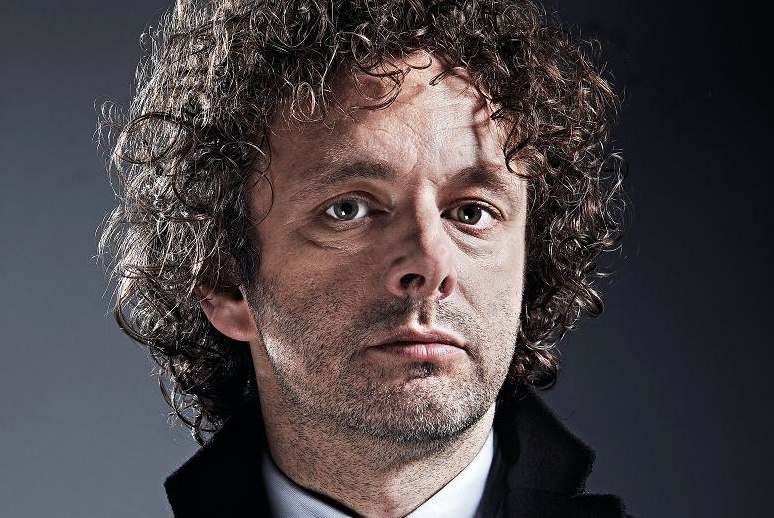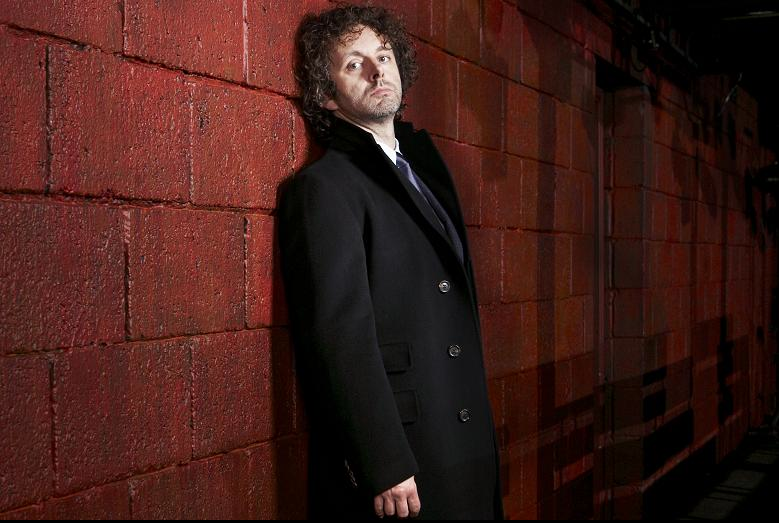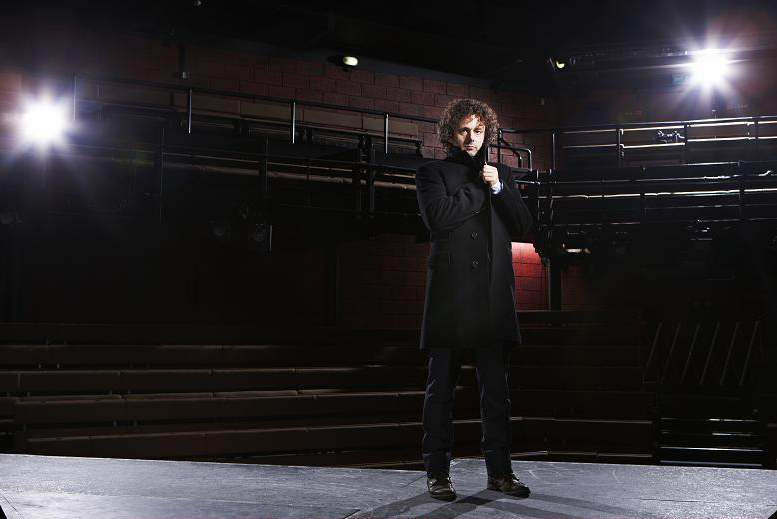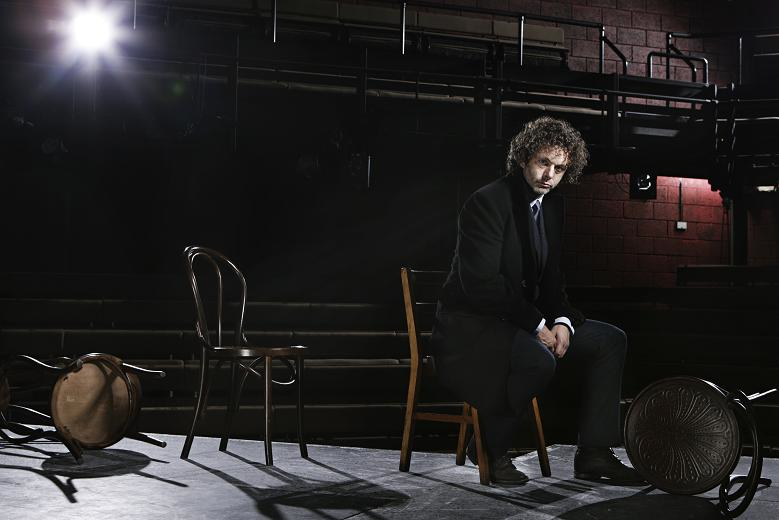



We’ve seen him as Tony Blair, Brian Clough and David Frost. But what of the man himself? William Leith tries to find out…
His face is still sharp and angular, although the beard makes it seem fuller. He has a longish nose that comes to a point at the end and a delicate, expressive mouth. He’s slim and slightly above average height. He’s one of our best actors. He’s absolutely brilliant. You could say that he’s made a career of impersonating men who are very bright, but also deeply flawed. He’s been Tony Blair three times, most famously in The Queen. He’s done Brian Clough, Kenneth Williams and David Frost, all with uncanny precision. He has said that when he plays someone, he looks for similarities between that person and himself. He was married to Kate Beckinsale, one of the most beautiful women in the world by any reckoning. Now he’s about to play Hamlet on the London stage. But who is he?
Yes, who is he? Michael Sheen shakes my hand and sits down. We’re in some kind of costume room at the Young Vic, where he’s rehearsing. He wears an old black T-shirt and black jeans. He is 42. For such a top-notch actor, I know almost nothing about him. He’s always been very guarded. I’ve read that he had a terrible split with Beckinsale in 2003, when she went off with Len Wiseman, the director of the film, Underworld, they were both working on. I can hardly imagine anything more crushing. And I’ve heard that, some time before this, he punched the actor Jeremy Northam, on set, when Northam said something rude. Apart from that, all you ever hear about Sheen is that he’s very bright and that he was once extremely good at football.
We sit at a table. Someone has brought me a glass of wine. Sheen doesn’t drink much alcohol. He likes to keep control. He’s Welsh, with a mellifluous voice. He spends most of his time in Hollywood, where he has a small three-bedroom house in an ordinary suburb close to the Hollywood Bowl. Not quite Beverly Hills. He moved there to be closer to his daughter, Lily Mo, now 12. He hasn’t got a house, or even a flat, in London. When he did a play in Wales last Easter – a 72-hour performance of The Passion in Port Talbot – he stayed with his parents. For the time being, he’s living in a flat down the road provided by the theatre. His girlfriend is Canadian actress Rachel McAdams – they met on the set of Midnight in Paris, the new Woody Allen comedy.
I ask him about the process of impersonating someone. I want to find something that links Blair, Clough, Williams and Frost, at least in Sheen’s mind. Then I might understand what makes Sheen tick.
“It comes down to trying to find out when someone is vulnerable,” he says. “Because these characters are all people who are skilled, in one way or another, at presenting a particular image.”
Like Sheen himself, I think. So what makes Blair vulnerable? Sheen ponders this. “Part of it is that area that was very difficult for people to pin down, certainly earlier on, of whether he really did believe in what he was doing, or whether he was being opportunistic. My Blair is someone who finds that difficult to pin down about himself as well. So the vulnerability comes from a slight uncertainty about his motives.”
I can see why Sheen’s Blair is so brilliant – he gets behind the slickness to the self-doubt that drives the slickness. You can see it when he’s betraying Gordon Brown in The Deal, Sheen’s first film as Blair. It’s a story about how a man can slide down, quite elegantly, from the moral high ground, almost without realising it himself. Sheen gets everything – the tics, the sudden smiles, the mixture of accents that almost stick in Blair’s throat as he speaks. How did he manage to get the Blair voice down pat? “That’s the simple side,” says Sheen. “You can teach any old parrot to do that. It’s the least important part of what I do.” Come on, I say. Tell me about Blair’s accent. “Like anybody else’s,” says Sheen, “it’s a mixture of where he comes from, who he wants to be, what he’s trying to get across. He’s got a little bit of Scottish in there, from when he was at Fettes, and a bit of his constituency. It’s always a patchwork.”
A patchwork that Sheen stitches together. He says that everybody has a blind spot, and it’s his job to search for that blind spot – “how they betray themselves”. Sheen’s Blair is driven to succeed. But does he really know why he wants to succeed, beyond the lure of success itself? Or is there a void at the centre of his soul? Possibly – and this is what Sheen explores. In Frost/Nixon, he plays TV impresario David Frost as an insecure outsider – someone who is riven with uncertainty, who wants to be taken seriously, but who is superficially ultra-slick. In Kenneth Williams: Fantabulosa!, Sheen plays the tragic comic as a man who’s also insecure because, like Frost, he thinks people don’t take him seriously. He’s right – they don’t.
I ask Sheen for his life story. “I wanted to be a football player, and then, at the time when I thought I might not be good enough, and also it started to not be enough for me, I threw myself more into acting. So football, which had been obsessive, got replaced with acting. And then acting became something that was a great guide through life, through the world. It allowed me to find a place for myself that gave me some validation, and a chance to find a bit of self-esteem, in a way that other things hadn’t.”
He was born in Newport, Wales, but moved to Liverpool at the age of 5, and then back to Wales – Port Talbot – 3 years later. Going back to Wales, he says, was “a tough move. To suddenly find myself in a new school where they all knew each other and I felt very much the outsider – that was quite traumatic. I think I got over it. But certain elements stayed with me. I suppose I always wanted to be accepted there, which is why I never had the same attitude that a lot of my contemporaries did, which was, ‘I want to get out.’ I’ve always loved it, with the feelings of someone who desperately wants to be accepted there, you know. And not to feel like the outsider.”
Early on, he was defined by football. “Certainly, by the time I was 7, I was obsessed with football. I was very good then. And it was handy later, at comprehensive school – on the one hand, I played football, and I was one of the best football players in the school. But because I also did drama, and I was quite academic, because I was quite good at each thing, I think the football helped me a lot.
It stopped me from being in any way picked on through being a drama kid.”
At the age of 12, Sheen, a midfielder – “a flair player”, as he puts it – was scouted by Arsenal and offered an apprenticeship. But his parents refused to move. How does he feel about that? I imagine he felt shattered, or at least crestfallen. But he feels grateful, he says. “My football career would have been over long ago.”
What drives Sheen? As a kid, he was good at everything. I ask him if girls fancied him as a teenager. Yes, he says, they did. No trouble there. Lost his virginity in his mid-teens. Plenty of girlfriends. “I didn’t go through feeling, ‘I’m never going to have a girlfriend,’ ” he tells me. When things don’t go well for him, he sweeps them under the carpet. But what about when he’s unhappy? I ask him about losing Kate Beckinsale to the director of Underworld. “It was a relationship that had run its course,” he tells me. “It wasn’t going to continue. And…”
In what sense? “I suppose comparing yourself with other people. Or feeling like, ‘I wish I was doing what that person is doing.’ Or, ‘I don’t want to feel like I’m falling behind these people.’ Competitive in that sense. I think every actor feels that, to a certain extent, and it’s just something you have to be wary of.” He thinks for a moment. “Part of what you have to come to terms with as an actor is looking at what is success for you. Because our culture tells us that success is certain kinds of things… And that’s the danger. With awards ceremonies, and that kind of stuff. You can find, too easily, that you have certain aspirations and goals that are very concrete… And then you are the best actor, and you have best actor awards, and all that kind of stuff. And that’s just death.”
What do I know about Sheen? I know he’s very talented. I know he’s bright. I know he gets the little details right. He’s obsessive. I think he’s frightened of his own ambition – that it might steer him down the wrong track. Towards easy fame. Towards awards. Towards money. But he’s aware of that. He’s got that covered. I think he’s frightened of not being the best thing since sliced bread. But he might have that covered, too.
READ More AT Source
thetimes.co Thanks MSheenOnline

Inga kommentarer:
Skicka en kommentar